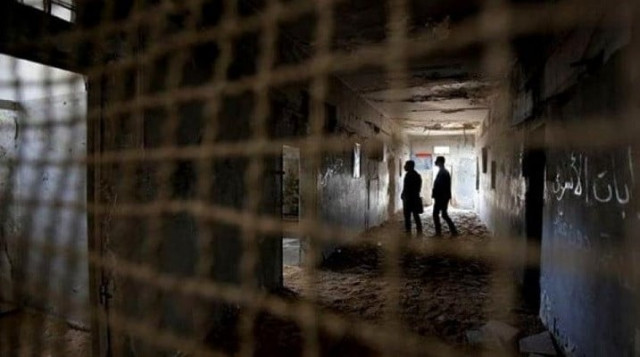Departmental inefficiency: Staff shortages make probation reform a distant reality
Lack of manpower highlights that rehabilitation of ex-offenders is not on government’s mind

After spending years or decades behind bars many prisoners get a chance at probation or parole in lieu of incarceration but with the absence of probation reform the efforts at rehabilitating offenders are now being questioned.
The service constituted under Punjab Probation and Parole Act Service was given vast powers in 2009; however, sources within the department now allege that service has remained ineffective as 524 parolees and 52,000 probationers await any prominent rehabilitation initiatives.
As per documents obtained by the Express Tribune, one of the reasons for the ineffectiveness is nearly 50 per cent of the 396 total positions and 42 parolee positions that are lying vacant currently.
Read: Prisoners across Punjab await booster jabs
Director General Punjab Probation and Parole Service Rana Abdul Shakoor Khan acknowledging the dire straits the department was in, said: "We are counselling 52,000 probationers despite the challenging circumstances. They are invited as a group where political, socio-religious and notable figures give lectures three to four times a year."
Psychologist Professor Dr Shehzad Hussain Tahir, terming the three to four lectures a year as inadequate, suggested that the department could only thrive if it employed manpower.
Dr Tahir was of the view that the department would be better off if it appointed a probation and parole officer and one psychologist in each district to offer parolees and probationers a better chance of integrating into society and not turning towards a life of crime.
Former inspector general (IG) prisons Mian Farooq Nazir concurring with Dr Tahir’s assessment, further added that there was great scope within the department for further improvement of individuals out on parole or probation but there was a lack of interest.
When asked what else the department could do in terms of rehabilitation initiatives, Nazir suggested that the government could establish prison-style institutions for counselling.
“Sahiwal used to have a Jail Certified School which too was shut down owing to security issues. So perhaps they need to offer more in terms of education,” he maintained.
Read More: Punjab’s soaring prison population a nightmare
On the other hand, Syeda Farah Hashmi, head of a non-governmental organisation (NGO) working for prisoners' rights, thinks that offenders past or present are of little concern for the government, stating that it was NGOs that were doing the major legwork as far as prisoner rehabilitation is concerned.
“Due to the absence of any governmental attention, we try to give parolees and probationers lectures and counselling on how to be respectable members of society. We can conduct more of these trainings if the government were to engage with us,” Hashmi told the Express Tribune.



















COMMENTS
Comments are moderated and generally will be posted if they are on-topic and not abusive.
For more information, please see our Comments FAQ